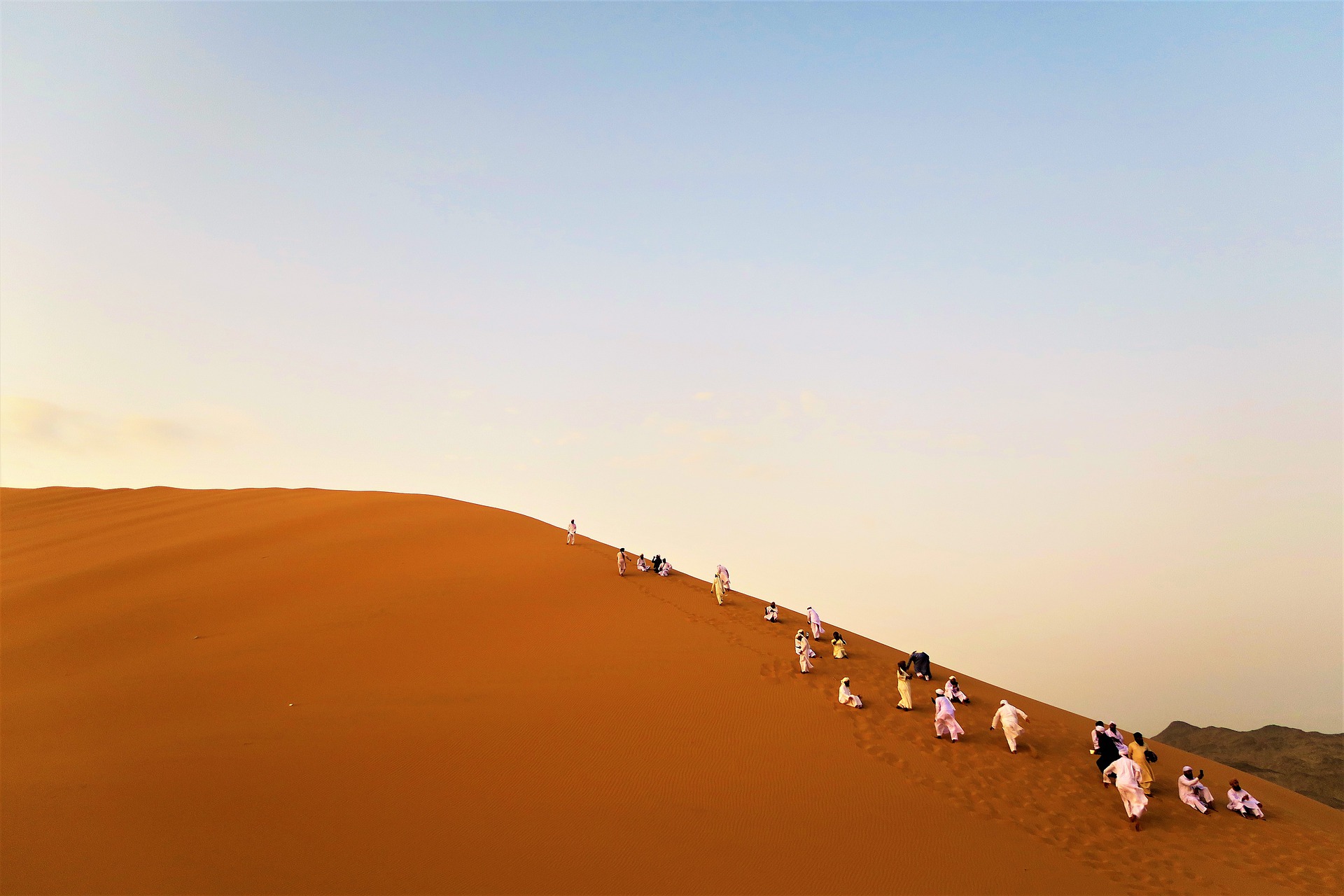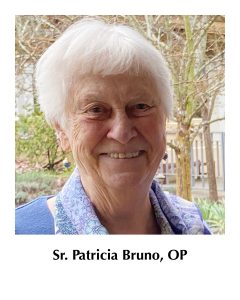- All
- Wisdom
- We Stand on Their Shoulders
- Vocation
- Uncategorized
- Stories Seldom Heard
- Spirituality
- Social Justice
- Prayer
- Peace
- Oneness
- Love
- Letting Go
- Lent
- Joy
- Inspirational Images
- Hope / Healing
- Holy Week
- Gratefulness
- God's Presence
- General News Stories
- Forgiveness
- Finding God
- Faith
- Easter
- Dominican Saints
- Discipleship
- Courage
- Christmas
- Catholic Sisters Week
- Care of the Earth
- Blessing
- Beauty
- Advent
- #justiceOPportunity
Isaiah 35:1-10 The Prophet of Hope
Sr. Patricia Bruno, OP

265st Edition August 2021
 “Strengthen hands that are feeble, make firm knees that are weak. Say to the fearful of heart, ‘Be strong, do not fear! Here is your God.’”
“Strengthen hands that are feeble, make firm knees that are weak. Say to the fearful of heart, ‘Be strong, do not fear! Here is your God.’”
Welcome to Stories Seldom Heard and a special welcome to our “Parables and Poetry” retreatants, Santa Sabina, CA. Before reading this reflection, I suggest you read the Isaiah passage (Isaiah 35:1-10). It is a beautiful image of hope that can strengthen us during these confusing and difficult days.
When I was the Promoter of Justice for our congregation, I had the privilege of going to South Africa to support an economic development project in which our congregation was involved. On my way to South Africa, we flew over the Sahara Desert. As I looked out of the window, further than I could see was the imposing Sahara Desert: the largest desert in the world. Its wrinkled golden-brown sand looked as though a gardener had taken a large rake forming uneven rows and ditches with no intention of planting a garden. There was no movement: no life to be seen. The vastness and diverse colors of the desert were outrageously beautiful and terrifying. I could only imagine what the heat and desolation of that desert would feel like.
We do not have to experience the Sahara to understand how deserts can impact our lives. Some deserts are geographic. Other deserts can be less tangible, but nevertheless penetrating. New life whether it comes in a physical desert or an emotional or spiritual desert might develop slowly, but when it arrives there is a sense of deep joy and surprise.
Perhaps that’s why Isaiah’s vision of extraordinary life and beauty in the desert terrain was so appealing to the Israelites then and to us now. “The desert shall bloom; like the crocus it shall blossom abundantly.” (Is. 35:1) “The burning sand shall become a pool, and the thirsty ground will bubble up with springs of water…grass shall become reeds and rushes.” (Is. 35:7) Defying the heat and drought of the desert regions, God promises to send unexpected beauty, nourishment and springs of water. These natural elements are signs of God’s favor, restoration and hope. But the searing, dry desert heat can be a fearsome place and a testing ground for any traveler. For those of weak hands or feeble knees it can mean death especially for those who travel alone. Few people can make a desert journey alone even if they are the hardiest of travelers.
Isaiah, however, does not leave us traveling on the desert sand. The image he uses is a broad highway “on which the holy ones” will travel. Large caravans not only have the highest rate of survival but also signal in this passage that no one is excluded from this holy highway. All are welcome. The highway is so wide that even fools will not go astray on this elevated road. “There will be no lion on the path or ravenous beast.” (Is. 35:8) These words were not just written for those living over two thousand years ago. They were also written for us. Enemies are real and powerful. They can wear us down. As a result of their strength and persistence, we can become like the dry places and barren land of the desert. Each of us at some time in our lives has experienced these temptations. For who among us has not needed the width of a broad highway to keep us on the right road and freed from hostile aggressors who might devour our dreams? So, Isaiah encourages us to have trustworthy traveling companions who are dependent on one another.
Even though we pilgrims might have entered onto this holy highway one by one, the journey itself forms us into a community. As we journey the eyes of the blind are opened to the strengths of the community. The ears of the deaf hear life-giving words that guide their steps. The lame walk the long journey with the help of others and the tongues of all the people shout the praises of God. Isaiah’s God promises us not only a safe journey, but also a change of perspective as we travel. It is a transformative journey that God alone can promise and provide. Even though God’s highway is broad and inclusive, we who travel it have the same destination, the same vision, and the same hope.
However, the plea Isaiah makes for community is costly. “Community is one of those words,” Flannery O’Conner, the well-known Southern author, says, “sounds good on everyone’s lips, but often never goes beyond lip service.” It is one of those “hard to define words” especially in a culture like our own. It is not a surprise that this belief and trust in community is an act of social subversion because it flies in the face of the dominant voices in our culture. Yet, community enriches our perspective and broadens our understanding of the creative God who calls us together. Even though community requires a stretching of our hearts and minds, the adversity, conflict, and disappointments help us grow and mature. Patience, compassion, forgiveness, friendship, delight and joy are the fruits of God’s grace and a sure sign that Christ is at the heart of our community. This is the call of the holy way….or as Mary Oliver says in her poem, What I Said at Her Service, “When we pray to love God perfectly, surely we do not mean only.” (1)
- Oliver, Mary, Thirst, “What I Said at Her Service”, Beacon Press, Boston, 2006. p. 19
Special thanks to Mary Ellen Green and Maria Hetherton who have helped in editing this article.
